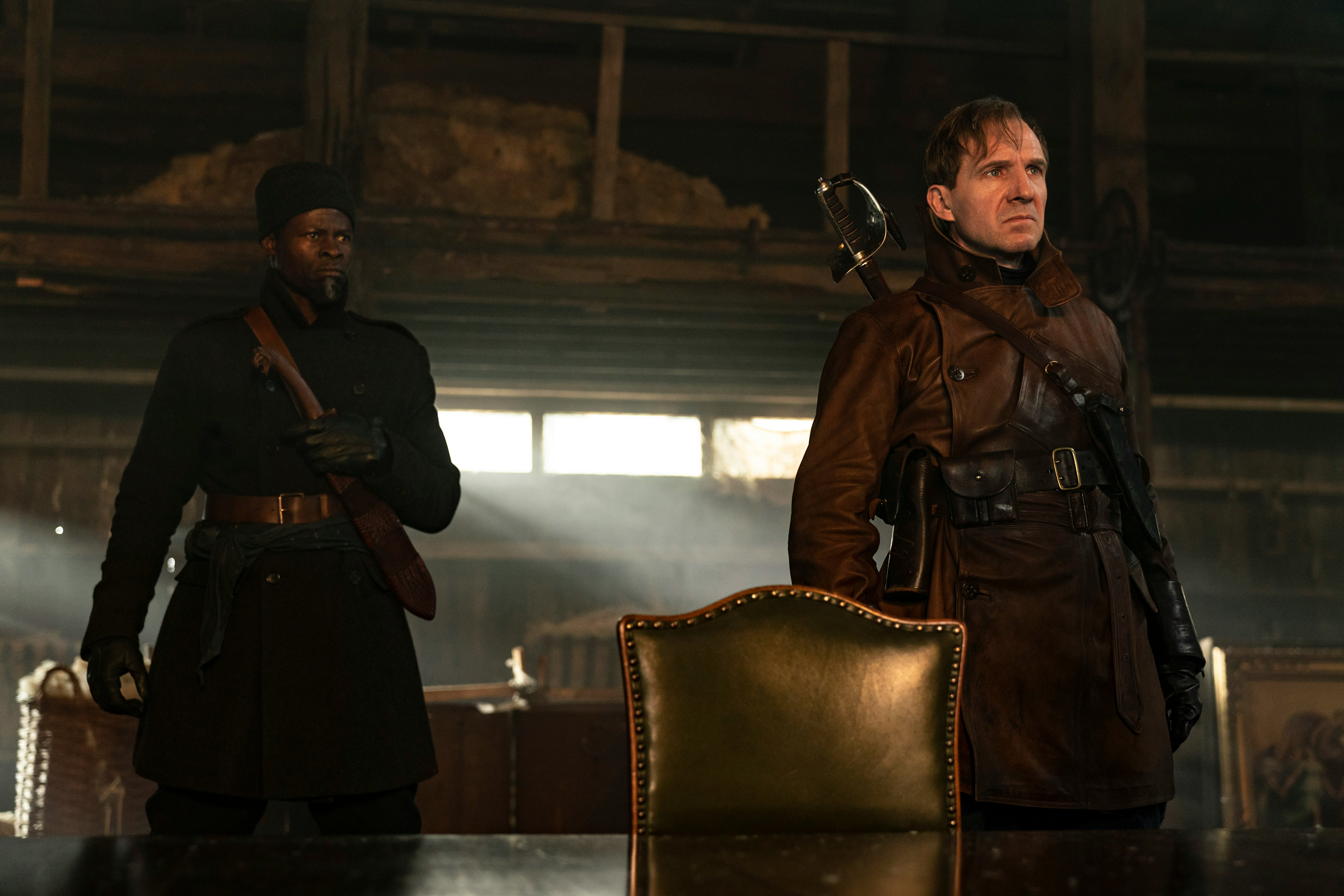
The Kingsman franchise is nothing without its out-there humor and big artistic swings — but its first prequel movie, The King’s Man, might just be the biggest swing of all. Director Matthew Vaughn repackaged his love for history and epic films into the saga he’d helped build, turning the clock back to the first World War and tracing the origins of the titular secret service in one fell swoop. Its critical and commercial reception notwithstanding, The King’s Man seemed to be a fun exercise for Vaughn... right up to a bewildering credits scene that took some bracing liberties with real-life history.
The King’s Man follows Ralph Fiennes’ Orlando Oxford on a journey to thwart an unnamed organization. Led by a figure called The Shepherd, this organization has been orchestrating the events of WWI by destabilizing the great empires of Europe. In this alternative history, they’re behind the rise of Rasputin (Rhys Ifans), the occultist Erik Jan Hanussen (Daniel Brühl), and even Vladimir Lenin.
The King’s Man’s post-credits adds another controversial ally to the mix with the introduction of a young Hitler (yes, really). That choice wasn’t a fluke, either: Vaughn apparently has big plans for a King’s Man sequel, and they have everything to do with history’s most dangerous figure.

Vaughn recently appeared at New York Comic-Con, where he spoke about everything from his time with the X-Men franchise to the future of Kingsman and Kick-Ass. He’s all in on the latter franchises: Kick-Ass is set for a reboot very soon, and the Kingsman franchise has two sequels on the way. One is the long-awaited Kingsman 3, subtitled The Blue Blood, which will pick up right where The Golden Circle left off and join the Kingsman service with its American cousins, Statesman.
The King’s Man is also getting its own follow-up, The Traitor King. “It is about the rise of Hitler,” Vaughn told Collider, “and how Hitler did come to power and basically was supported by the English aristocracy.”
Hitler was mentored briefly by Erik Jan Hanussen, so it’s safe to assume that Brühl will be back for The Traitor King — but Britain’s then-monarch did also have a huge hand in Hitler’s rise. King Edward VIII was one of the most prominent Nazi sympathizers in the years leading to WWII; for him and his peers, fascism was a welcome alternative to the threats that democracy and socialism presented to the monarchy.

It’s not a topic of history that’s frequently explored, which makes it all the more important to Vaughn. “It is a story that I think needs to be recalled,” the director says. “I look at the world at the moment, everyone getting distracted and worrying about this [and that] and if you worry too much about [this] bad things can happen here.”
We’re definitely living through a renewed rise of bigotry, both at home and abroad. The Traitor King could be just the kind of story that we need to tell right now — as long as Hitler’s role is depicted with more sensitivity than, say, Rasputin’s in The King’s Man. Vaughn’s dream franchise may be headed for an even riskier choice; hopefully it sticks the landing.







